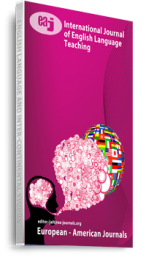The enquiry why some persons are likely to communicate in definite situations when others are not is central to the willingness to communicate prototypical. Based on Willingness to communicate model, the use of second language is the result of some complicated factors that affect willingness to communicate. As some studies and teachers’ reports have shown learners of second /foreign language are not in favor of being evaluated during class and also they may not perform their true ability of themselves, particularly by means of tests at the end of the course. The present study was designed to explore the relative effects of two alternative assessment tools (peer-evaluation and self-evaluation) on enhancing learners’ willingness to communicate. Due to accomplishment the purpose of this study, 3 measuring instruments (Oxford placement test, willingness to communicate questionnaire and peer/self-evaluation rubric) were exploited. The 70 subjects of the research completed a questionnaire and took part in treatment sessions. Findings revealed that peer/self-evaluation had positive effect on learners’ WTC. Based on these findings, pedagogical implications for English teaching and learning were also suggested to increase willingness to communicate.
Keywords: ELT intermediate learners, Peer-evaluation- Self-evaluation- Willingness to communicate

